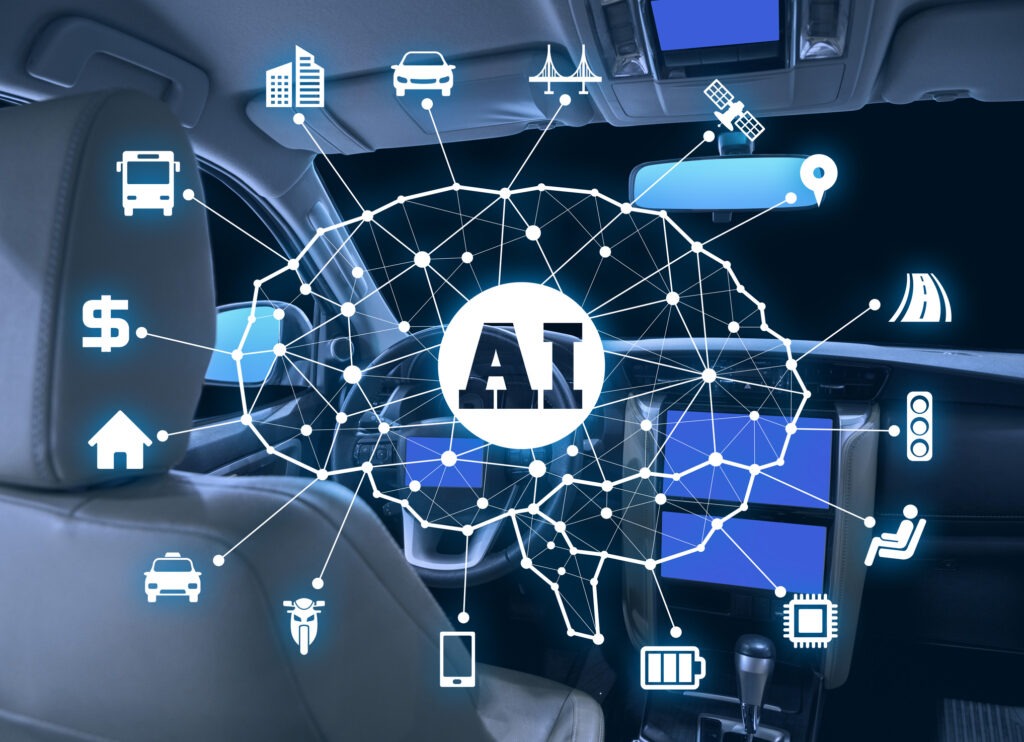justineanweiler.com – Artificial Intelligence (AI) is rapidly transforming the automotive industry, from autonomous driving to personalized in-car experiences. This integration of AI is reshaping how vehicles are designed, manufactured, and driven, offering safer, more efficient, and more convenient transportation solutions.
1. Autonomous Driving: The Future of Mobility
AI-powered self-driving technology is one of the most groundbreaking advancements in the automotive sector. Companies like Tesla, Waymo, and General Motors are leading the charge in developing vehicles capable of navigating complex environments with minimal human intervention.
How It Works:
AI uses machine learning algorithms, sensors, cameras, radar, and LIDAR to process real-time data, enabling vehicles to make decisions such as stopping at traffic lights, changing lanes, and avoiding obstacles.
Impact:
- Safety: AI reduces human error, a leading cause of road accidents. Advanced Driver Assistance Systems (ADAS) use AI to prevent collisions through features like automatic emergency braking, lane-keeping assist, and adaptive cruise control.
- Efficiency: Autonomous vehicles optimize routes, reduce traffic congestion, and lower fuel consumption, contributing to environmental sustainability.
2. Smart Manufacturing and Supply Chain Management
AI is streamlining automotive manufacturing processes, enhancing productivity and precision.
Applications:
- Predictive Maintenance: AI predicts equipment failures before they occur, minimizing downtime and reducing costs.
- Robotics and Automation: AI-driven robots handle repetitive tasks with high accuracy, improving assembly line efficiency.
- Supply Chain Optimization: AI analyzes supply chain data to predict demand, manage inventory, and optimize logistics, ensuring timely delivery of components.
Impact: Faster production cycles, reduced operational costs, and higher-quality vehicles.
3. Enhanced In-Car Experience
AI is making vehicles smarter and more personalized, transforming the driving experience.
Features:
- Voice Assistants: AI-powered assistants like Alexa Auto and Google Assistant provide hands-free control of navigation, music, and phone calls.
- Personalization: AI analyzes driver behavior to adjust seat positions, climate control, and infotainment preferences automatically.
- Driver Monitoring Systems (DMS): AI tracks driver attention and fatigue levels, issuing alerts when necessary, enhancing safety.
Impact: Enhanced comfort, convenience, and safety for drivers and passengers.
4. AI in Vehicle Maintenance and Diagnostics
AI-driven diagnostic tools are revolutionizing vehicle maintenance by identifying potential issues before they become major problems.
Applications:
- Predictive Diagnostics: AI monitors vehicle health in real-time, predicting component failures and suggesting maintenance schedules.
- Automated Service: AI-powered chatbots and service platforms streamline customer support, booking appointments, and answering queries.
Impact: Reduced maintenance costs, increased vehicle lifespan, and improved customer satisfaction.
5. AI and Electric Vehicles (EVs)
AI plays a crucial role in the development and management of electric vehicles.
Applications:
- Battery Management Systems (BMS): AI optimizes battery performance, enhancing range and longevity.
- Energy Efficiency: AI predicts energy consumption patterns and suggests optimal charging times and routes.
- Autonomous Charging Stations: AI enables smart charging networks that automatically connect to vehicles and manage energy distribution.
Impact: Improved energy efficiency, reduced charging time, and broader EV adoption.
Challenges and Future Outlook
Despite its benefits, AI in the automotive industry faces challenges:
- Regulatory and Ethical Issues: Defining legal responsibilities in accidents involving AI-driven vehicles is complex.
- Data Security: Protecting sensitive data from cyber threats is a major concern.
- High Development Costs: Implementing AI technology requires significant investment, posing a barrier for smaller manufacturers.
However, with continuous advancements, AI is expected to overcome these hurdles, driving the industry toward fully autonomous, connected, and sustainable transportation systems.
Conclusion
AI is at the forefront of the automotive industry’s evolution, offering innovative solutions that enhance safety, efficiency, and user experience. As AI technology continues to advance, we can expect a future where intelligent vehicles not only transport us but also anticipate our needs, making mobility safer, greener, and more personalized than ever before.





